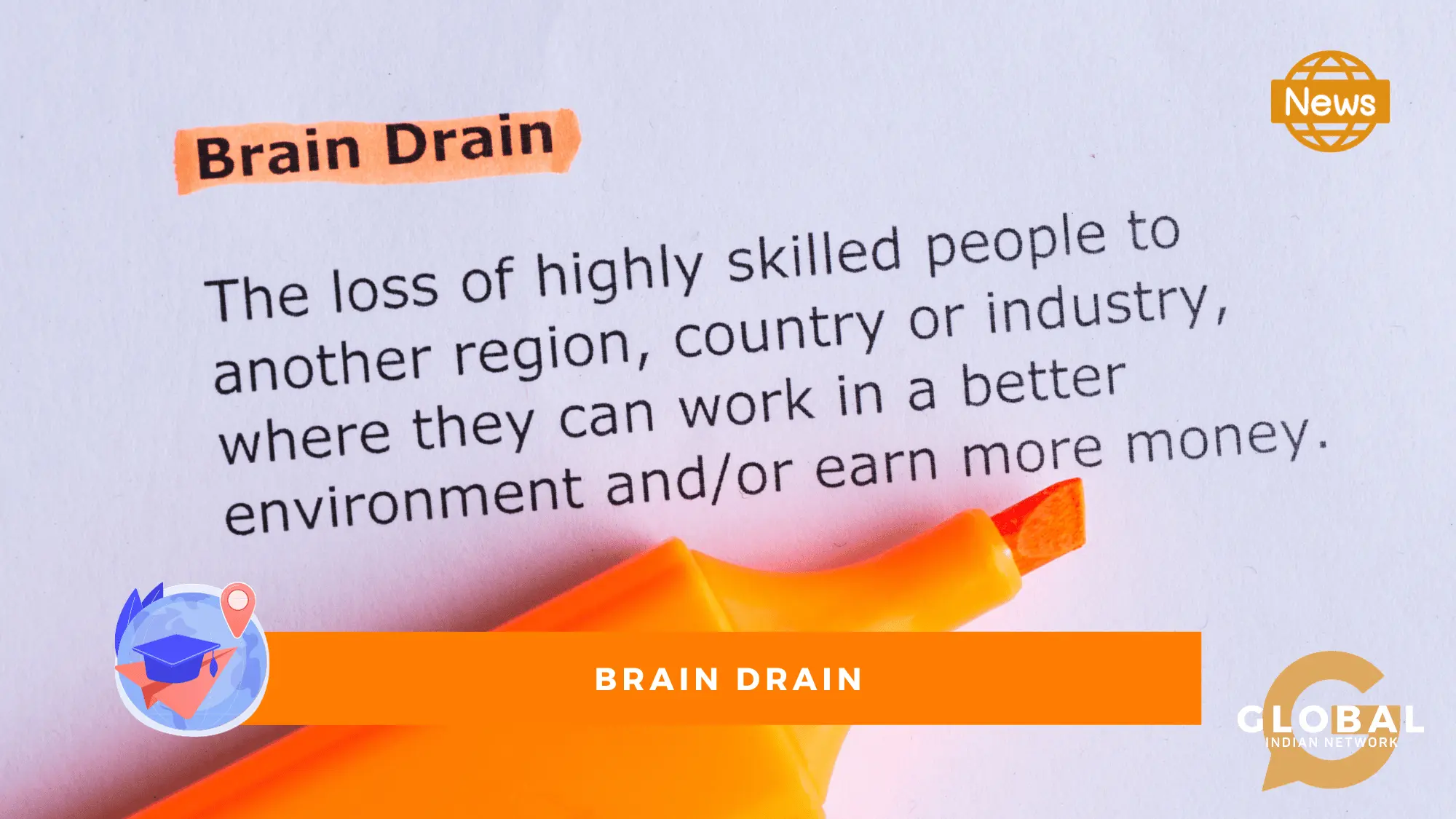India, a land of diversity and contrasts, has always been known for its rich heritage, ancient traditions, and a pool of brilliant minds. However, in recent years, it has grappled with a pressing issue threatening its socio-economic fabric – the brain drain. This phenomenon involves the emigration of highly skilled and educated individuals, often searching for better opportunities abroad, leaving the nation facing a severe talent shortage. In this blog, you will delve into the causes and consequences of brain drain in India, exploring its impact on the country and its expatriates.
Table of Contents
Understanding Brain Drain in India
Brain drain, a term often associated with the exodus of talented individuals from their home countries, is a pressing concern for India. In this section, we will define the concept and delve into its historical context within the Indian context.
The Definition and Scope of Brain Drain
Brain drain is when a country experiences a significant emigration of its educated and highly skilled workforce to other countries. In the Indian context, this includes doctors, engineers, scientists, IT professionals, and other professionals who seek opportunities abroad.
The Historical Context of Brain Drain in India
Brain drain is not a new issue for India. It has been a concern since the 1960s when many Indian professionals began leaving for the United States, the United Kingdom, Canada, and other countries. The trend has continued and even intensified over the years, raising questions about its long-term impact on the country.
Causes of Brain Drain
The reasons behind the brain drain in India are multifaceted. Economic factors, educational opportunities abroad, quality of life, and political instability all contribute to this phenomenon. Understanding these causes is essential to addressing the issue.
Economic Factors Driving Immigration
One of the primary reasons for brain drain in India is the economic disparity between the country and the developed nations. Individuals often seek higher salaries and better living standards abroad. The allure of foreign currency and the ability to provide a better future for their families play a significant role in their decision to emigrate.
Educational and Career Prospects Abroad
High-quality education and research opportunities are a magnet for Indian students and professionals. Many prestigious universities and institutions in countries like the United States offer world-class programs and research opportunities, attracting Indian talent.
Quality of Life and Social Factors
Improved quality of life, access to better healthcare, and a more stable social and political environment are additional factors that prompt Indians to leave their homeland. A better work-life balance, cleaner environments, and improved infrastructure abroad are attractive prospects for many.
Political Instability and Lack of Opportunities
Political instability and a lack of opportunities in specific sectors, such as research and development, can also drive individuals away from India. Bureaucratic hurdles, corruption, and limited funding for research projects are often cited as reasons for this.
Consequences of Brain Drain
The consequences of brain drain extend beyond individual decisions. India faces economic setbacks and changes in social dynamics, and expatriates experience both advantages and challenges. In this section, we will explore these far-reaching effects.
Economic Repercussions for India
The brain drain has significant economic consequences for India. The country invests heavily in the education and training of its workforce, but when these skilled individuals emigrate, India loses out on its investment returns. Additionally, the loss of skilled workers can hinder innovation and economic growth.
Social and Cultural Impact
Brain drain can lead to a loss of cultural diversity and social values in India. As people from diverse backgrounds leave, it can affect the country’s social fabric and cultural exchange. Moreover, the absence of skilled professionals can impact various sectors like healthcare, education, and research, leading to reduced quality in these areas.
Individual Benefits and Challenges for Expatriates
Expatriates, on the other hand, often experience personal and professional growth abroad. They gain exposure to different cultures, acquire new skills, and enjoy higher salaries. However, they also face challenges such as adapting to a new environment, dealing with homesickness, and sometimes experiencing discrimination.
Measures to Mitigate Brain Drain
To combat brain drain effectively, India has implemented various measures and policies. This section highlights the government’s efforts and the importance of strengthening educational institutions and fostering innovation and entrepreneurship to mitigate brain drain.
Government Policies and Initiatives
The Indian government has been taking steps to mitigate brain drain. Initiatives like “Make in India” and “Startup India” aim to create a more conducive environment for business and entrepreneurship, thereby retaining talent and encouraging expatriates to return.
Strengthening Education and Research Institutions
Investing in education and research institutions to enhance the quality of education and research opportunities is crucial. India can retain more talent by offering competitive programs and fostering innovation.
Fostering a Culture of Innovation and Entrepreneurship
Encouraging a culture of innovation and entrepreneurship within India can create more opportunities for skilled professionals. Initiatives like “Digital India” and support for startups can help create a thriving ecosystem for innovation.
Conclusion
Brain drain remains a significant challenge for India, but it’s not insurmountable. By addressing the underlying causes and implementing strategic measures, India can reverse the trend and harness the potential of its skilled workforce for its own growth and development. The country must create an environment where individuals not only receive an excellent education but also have ample opportunities to apply their skills and talents in a meaningful way. Ultimately, nurturing India’s talent at home is the key to overcoming the great Indian problem of brain drain.
In conclusion, while brain drain has been a long-standing issue for India, it is not without solutions. By addressing the root causes and implementing effective policies, India can turn the tide and ensure that its talented individuals contribute to the nation’s growth and development. Brain drain may be a challenge, but with the right approach, it can be transformed into an opportunity for India to shine on the global stage.
FAQs
What is brain drain, and why is it a concern for India?
Brain drain refers to the emigration of highly skilled individuals from their home country. It is a concern for India because it results in a loss of talent, hindering the nation’s economic and social development.
What are the main causes of brain drain in India?
Brain drain in India is primarily caused by economic factors (higher salaries abroad), better educational and career opportunities overseas, improved quality of life in foreign countries, and political instability coupled with a lack of opportunities at home.
What are the consequences of brain drain for India and its expatriates?
For India, brain drain leads to economic setbacks and changes in social dynamics. Expatriates benefit from improved living standards but face challenges such as adapting to a new environment.
How is India addressing the issue of brain drain?
India is combatting brain drain through government initiatives like “Make in India” and “Startup India.” It also focuses on strengthening educational institutions and fostering innovation and entrepreneurship to create opportunities for its skilled workforce.










[…] citizenship can boost diaspora engagement and combat the "Great Indian Brain Drain," but its benefits must be balanced against economic disparities, national security concerns, and […]
[…] the economy. Limited opportunities may prompt skilled workers to seek employment abroad, causing a brain drain that hinders economic recovery and development. These social impacts underscore the country's debt […]